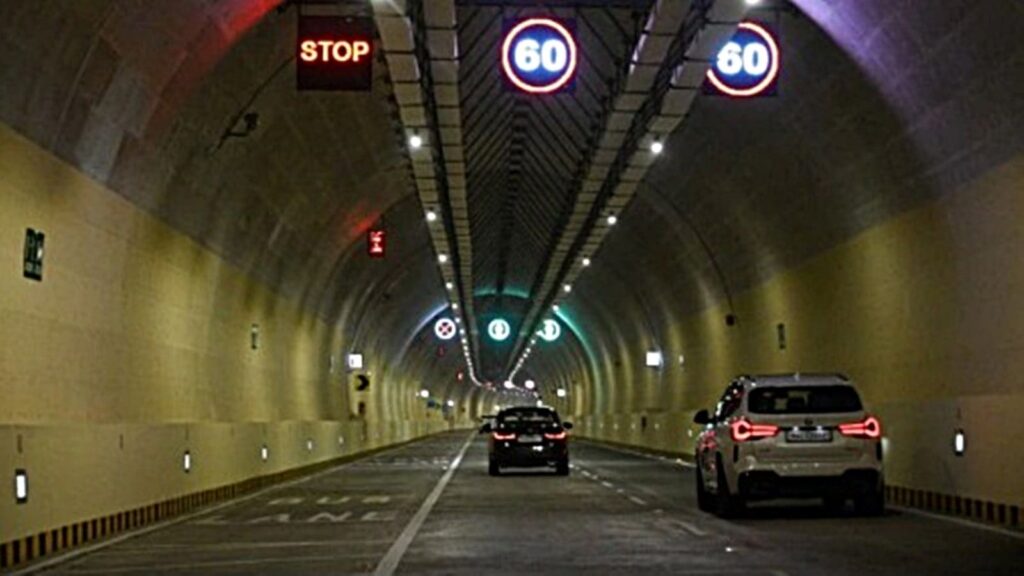The National Green Tribunal (NGT) on Wednesday issued notices acting on a petition filed by the Bengaluru Praja Vedike and others challenging the Bengaluru twin tunnel road project, which they allege was “hastily announced”, bypassing mandatory environmental impact assessment procedures.
The notices have been issued to the Karnataka Government, Greater Bengaluru Authority, State Environment Impact Assessment Authority (SEIAA), Bengaluru Smart Infrastructure Ltd (B-SMILE), the Union Ministry of Environment, Forest and Climate Change, and the project consultants.
The ambitious infrastructure project was first announced in May 2024 during the Karnataka Government’s budget speech, proposing a 16.74-km twin-tube tunnel connecting Hebbal to Silk Board at an estimated cost of Rs 19,000 crore. The Cabinet approved the project on May 22 this year, to be implemented under a build-own-operate-transfer (BOOT/BOT) model.
A Special Purpose Vehicle named Bangalore Smart Infrastructure Ltd (B-SMILE) was created specifically for the project, with Rodic Consultants preparing the detailed project report (DPR) in just three months.
However, the project – an ambitious proposal by Deputy Chief Minister D K Shivakumar- has attracted sharp criticism from urban mobility experts, and environmentalists who have dubbed it unscientific and environmentally harmful. They say the twin tunnels will only aggravate the traffic congestion in Bengaluru.
Concerns over planning and approval
The petition alleges that the project was “hastily announced” without adequate technical assessment or support from the Comprehensive Mobility Plan 2020. It claims the proposal was “politically driven from inception” and advanced despite two failed Expressions of Interest, later being “retrofitted into a feasibility study through procedural maneuvering.”
According to the petition, the DPR contains “factual errors, incomplete annexures, and omissions of essential studies”. “Specifically missing are site-specific geological surveys; hydrological and flood-risk mapping; biodiversity assessment and tree enumeration,” the petition reads.
Story continues below this ad
The traffic modelling is also criticised for excluding major vehicle categories and underestimating emissions, while still acknowledging that key junctions will remain at worst congestion levels.
The tunnel alignment is said to pass through ecologically sensitive and legally protected areas, including the Peninsular Gneiss formation at Lal Bagh; Hebbal Valley’s stormwater corridor, and areas near the critically polluted Peenya Industrial Area.
These zones face high risks of groundwater depletion, soil instability, and aggravated flooding, according to the petition, which also points out experts’ opposition and policy contradictions.
Shift from public to private transport
Independent studies, including research from the Indian Institute of Science, reportedly conclude that the project will cause a shift from public to private transport, increase exhaust emissions and fossil fuel use, and exacerbate climate vulnerabilities.
Story continues below this ad
The Directorate of Urban Land Transport, a government think tank, has also confirmed that the project contradicts Bengaluru’s approved mobility and climate policies and has recommended alternatives instead.
One of the most significant allegations in the petition concerns the bypassing of mandatory environmental impact assessment (EIA) procedures. The petitioners claim that the respondents have ignored public consultation requirements, relied on a technicality that “tunnels” are not explicitly listed under the EIA Notification 2006, to evade clearance, and followed practices similar to the controversial 2017 steel flyover project.
Metro alternative highlighted
The petition emphasises that a proposed Metro corridor along the same alignment would offer “a far more sustainable, easily accessible, inclusive and environmentally sound alternative” to the tunnel project.
The applicants have requested the NGT to declare the project unlawful, quash the tender process, and direct the complete cancellation of the project.
Story continues below this ad
They argue these measures are necessary to prevent irreversible ecological harm, uphold statutory environmental safeguards, and protect the constitutional right to a clean and healthy environment.
The co-petitioners are Kathyayini Chamaraj, executive trustee at CIVIC, and environmentalist Dattatraya Devare.
Devare, speaking to indianexpress.com, said, “No state government body was willing to listen to the red flags of this tunnel road project. Ultimately, we had to knock on the doors of the NGT to stop this project , which would be detrimental to Bengaluru’s environmental landscape.”

